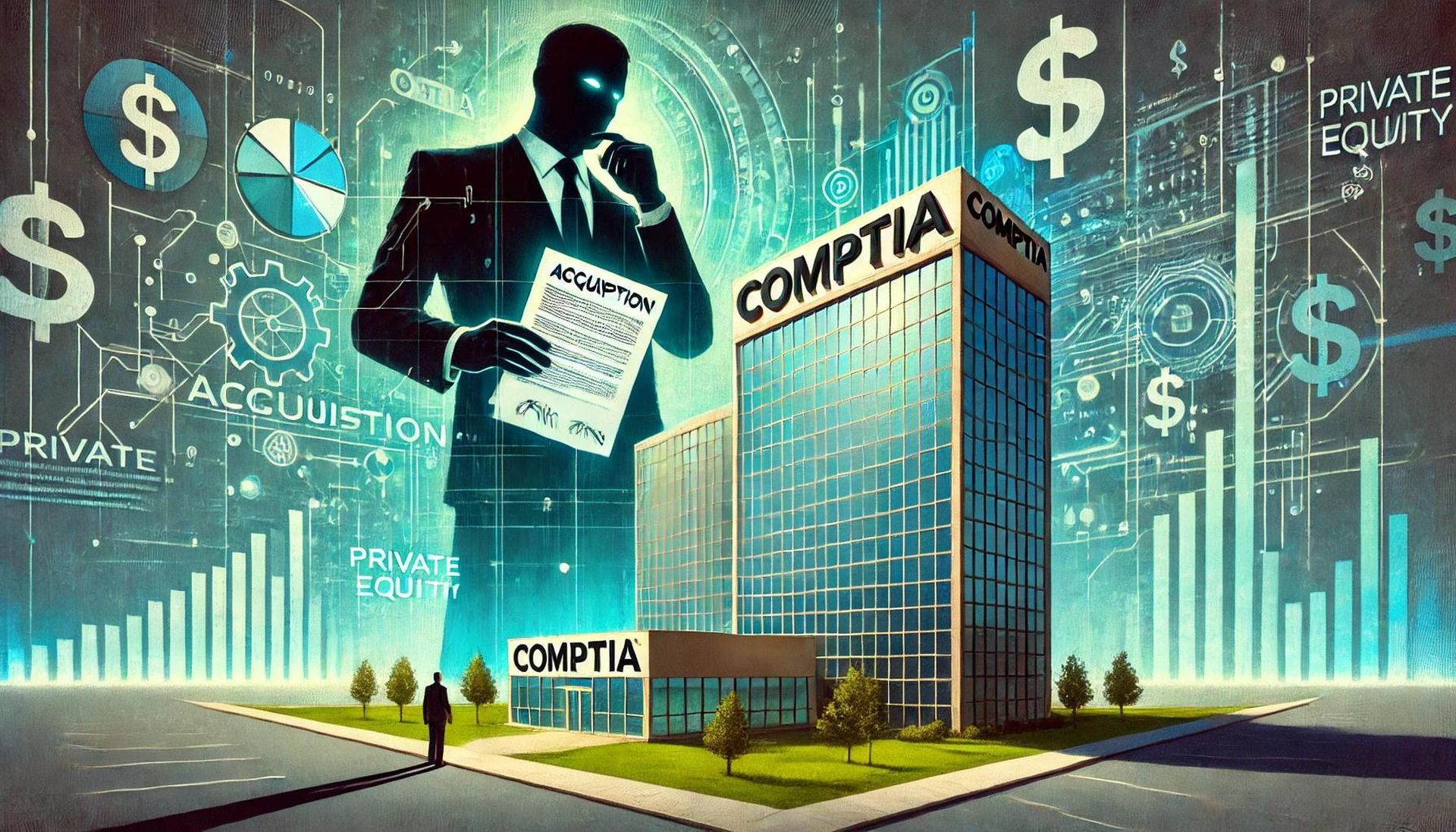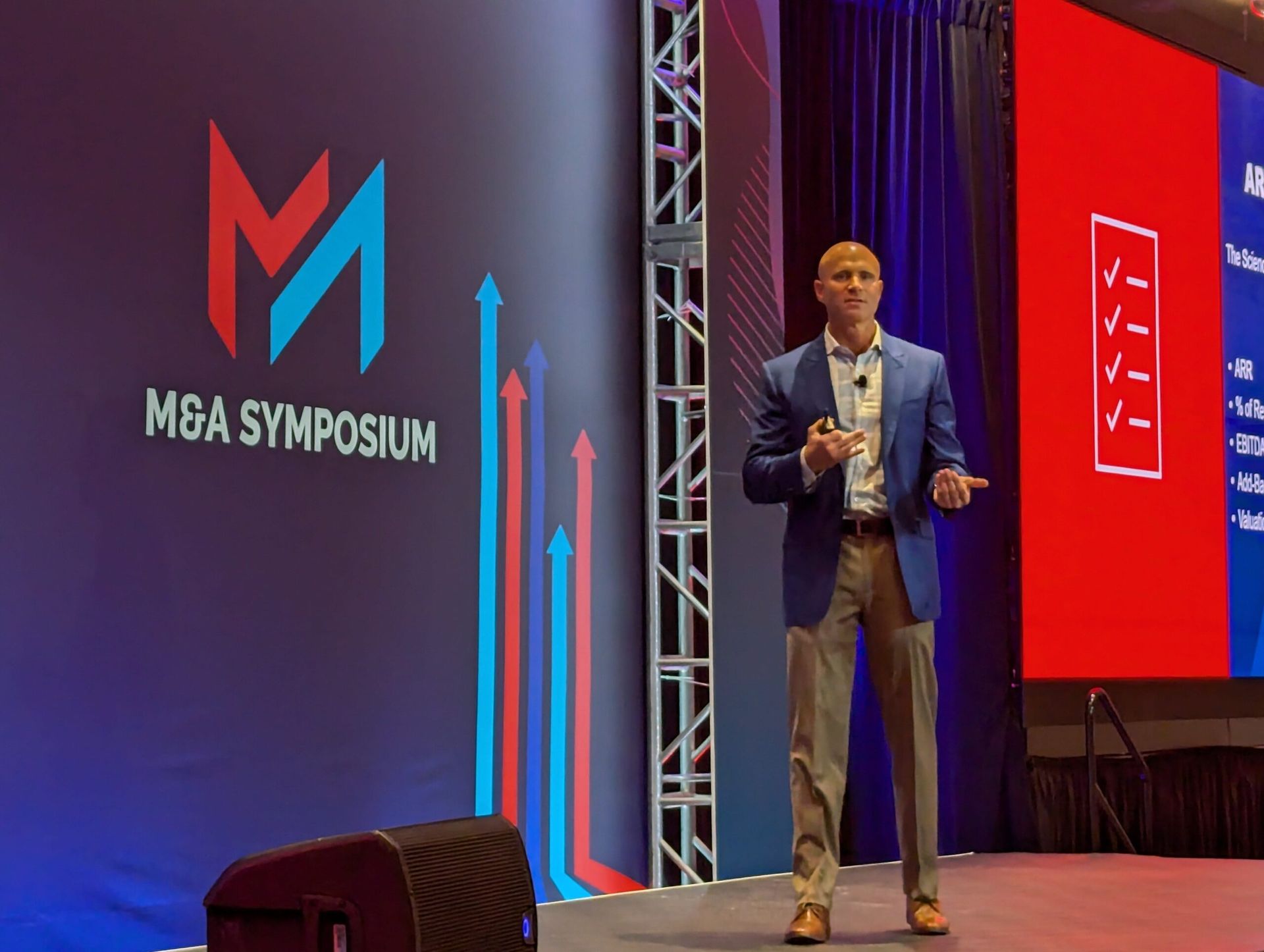Some critics allege private equity is destroying the MSP software market. Proponents claim private equity built the MSP software market. So, which is it?
Before you choose sides, maybe it's time for a reality check. Rewind to the early days of the MSP software sector. Two decades ago, the fledging world of MSP software couldn't attract venture capital or private equity dollars.
The result? Passionate software company founders like ConnectWise CEO Arnie Bellini and David Bellini had to bootstrap their businesses. Hang out at the Tampa airport, and you'd see Arnie heading toward his next flight. Destination? Somewhere that involved personally installing PSA software on customers' MSP systems. During a layover or regional event, perhaps a colorful conversation with Kaseya co-founder Gerald Blackie would ensue. The takeaway at the time: Within the MSP software sector, entrepreneurial passion filled a financial void until private equity arrived.
Warning - Sarcasm In Next Two Paragraphs: Dig a little deeper. Things were pretty awesome in the early days of MSP software. Oh, how MSPs long for the good old days. Instead of buying a cloud subscription for a few nodes, back in 2005 or so you could mortgage your home (twice) to buy 5,000 client/server end-nodes from Kaseya. Yes indeed: Client/server technology and associated financial models absolutely rocked.
Let's re-run the 2005 software licensing math for you: Of your initial 5,000 RMM licenses, roughly 4,950 of those purchases were shelfware. You didn't need them. And neither did your customers (because you had no customers). But you purchased in bulk to get a coveted discount. The good news? You found a customer who wanted 50 RMM nodes. Surely, the next 4,950 nodes would be easier to sell -- or not -- while you gradually paid that first and second mortgage on your house.
The Shift to MSP Software M&A
Around 2010, ConnectWise began using its own money to invest in startups. Names like LabTech come to mind. Suddenly, PSA and RMM converged. By 2013, Insight Partners acquired Kaseya, and SolarWinds acquired N-able. Gradually, private equity firms like Thoma Bravo, Vista Equity Partners and Summit Partners discovered the MSP market.
Funding from the PE firms drove mergers like Datto and Autotask, then ConnectWise and Continuum, and now Kaseya and Datto. I concede: The PE deals haven't been perfect. MSPs have had to navigate product overlap; some R&D and contract hassles; and some support headaches.
Still, I'm surprised (in some cases) by all the complaining about the Kaseya-Datto deal. It ain't perfect. Kaseya has got to improve its licensing terms and business flexibility. But MSPs have to realize: Without private equity, the MSP software industry would be stuck in the client-server era. MSP Software CEOs -- the founders -- would still need to fly to customer sites to do MSP installs. And there's absolutely no way that MSPs would be in position to manage on-premises, hybrid and cloud services.
Warning - Final Sarcasm In This Paragraph: It would be great if private equity left the MSP software market. Mature, innovative companies like Microsoft deliver a better partner model. After all, Microsoft has absolutely wowed the MSP market lately with its licensing terms and price flexibility (up and to the right).
Kaseya Buys Datto: Some MSPs Complain, But...
Overall, I suspect hundreds of MSPs are complaining about Kaseya buying Datto. In some cases, those MSPs are raising the right questions. But in other cases, I think emotions have somehow blinded people to market realities: The most successful MSP owners have greatly benefitted from private equity helping MSP software providers to scale. And now, those MSP owners are benefitting from private equity directly -- as thousands of MSPs engage in M&A each year. And in many cases, the MSP valuations are quite lucrative.
I'll repeat what I've said before: Private equity isn't all good. And it isn't all bad. Each deal needs to be judged on its own merits and performance.
I admit, putting Kaseya and Datto together involves product overlap (fact) and corporate culture clash (my firm opinion). Still, I don't expect thousands of MSPs to start running to alternative platforms. Remember: Kaseya was growing 20 percent annually before the Datto acquisition surfaced. Surely, CEO Fred Voccola must have been doing quite a lot right -- even if he clashed on some fronts with some market players.
Proven MSP Formulas for Success: Unchanged
Looking ahead, I suspect the most profitable MSPs will continue executing proven business strategies:
Fast forward to 2023. Perhaps the Kaseya-Datto deal will be a mess. Or perhaps it will succeed in major ways. Either way, MSPs should park their emotions and just focus on the need at hand: Adopt automation, management and risk mitigation solutions that solve the business problems at hand.
Here Comes Venture Capital (And More...)
In some cases, the solutions will be backed by private equity. But increasingly, I suspect the conversation will shift to venture capital -- as Pax8 proved this week with Softbank.
In some ways, it's getting late in the MSP software market. But in other ways, it feels like the early innings of something bigger... ... ...
Either way, private equity is here to stay. Get used to it. Navigate it. Use your voice and your software budgets ... and you may even influence it.
But don't label it as all good or all bad.




